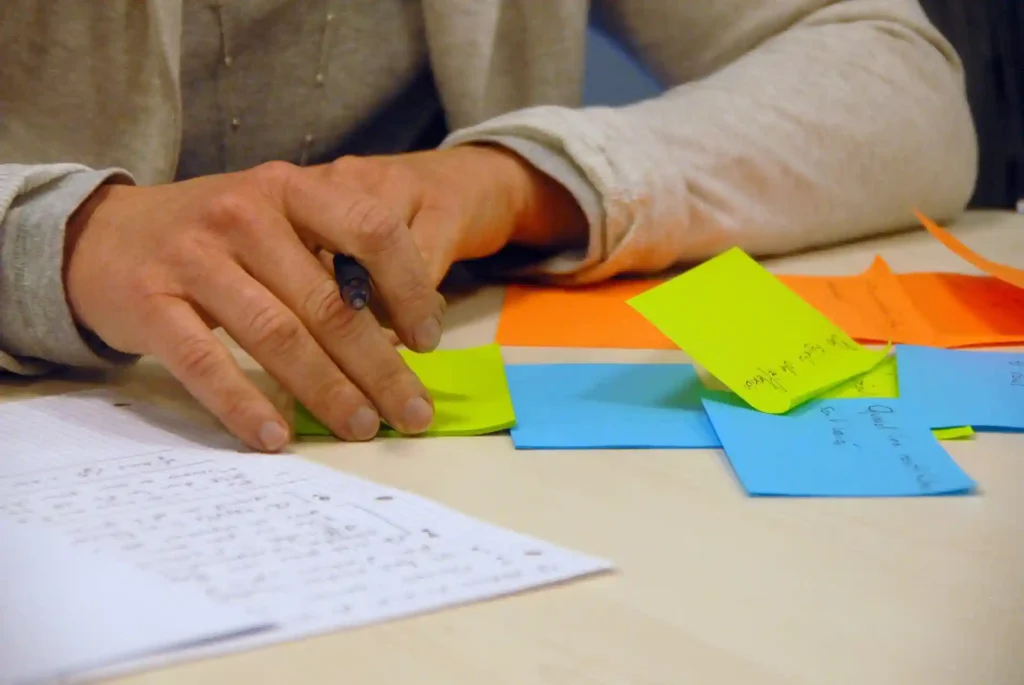
Brainstorming AI: Unlock Creative Potential in Architecture and Construction
In this category, you’ll discover AI-powered brainstorming tools that are transforming the way architects, engineers, and construction professionals generate and refine ideas. These AI-driven platforms provide creative assistance by suggesting innovative solutions, refining concepts, and fostering collaboration during the design and planning stages. Whether you’re exploring new architectural styles or solving complex construction challenges, brainstorming AI tools help elevate your thinking and streamline the creative process.
Brainstorming AI Explained
Brainstorming AI tools are advanced platforms that assist in idea generation and creative problem-solving. By leveraging machine learning and natural language processing, these tools analyze user input and generate innovative suggestions. In the AEC sector, brainstorming AI can be used to develop design concepts, optimize construction workflows, and create sustainable building solutions. These tools offer architects and engineers a faster, more efficient way to explore new ideas, test concepts, and collaborate across teams.
Why You Need To Use These AI Tools
AI-powered brainstorming tools are revolutionizing creative processes in architecture and construction. Here’s why you need them:
Accelerated Idea Generation: AI rapidly produces diverse ideas, helping teams explore multiple design directions in a short amount of time.
Enhanced Collaboration: Facilitates team-based brainstorming by integrating input from multiple stakeholders, driving more comprehensive solutions.
Innovation Boost: Suggests novel ideas by analyzing trends, user preferences, and data patterns, pushing design boundaries.
Problem-Solving Assistance: Offers creative solutions to complex challenges like sustainability, structural efficiency, and space optimization.
Reduced Creative Block: AI helps overcome mental blocks by continuously suggesting new angles and perspectives, ensuring the creative process flows smoothly.

Brainstorming
Elevate Design Processes with AI-Powered Brainstorming Tools
AI-driven brainstorming tools offer powerful solutions across various stages of architectural and construction projects, enhancing creative workflows:
Concept Development: Generates diverse design ideas and architectural styles based on initial inputs, helping architects shape early concepts.
Sustainability Solutions: Suggests eco-friendly materials, energy-efficient designs, and green building technologies for sustainable projects.
Workflow Optimization: Helps identify more efficient construction processes, reducing delays and optimizing resource allocation.
Space Planning: Provides innovative layouts and configurations for maximizing space usage in residential, commercial, or industrial projects.
Material Selection: Offers creative suggestions for material combinations, enhancing both aesthetic appeal and functional performance.
Who Benefits
AI-driven brainstorming tools can support various professionals within the architecture, engineering, and construction industries. Here’s who can gain the most from using them:
Architects: Generate creative design concepts, explore new architectural styles, and refine project ideas quickly.
Engineers: Find innovative solutions to complex structural and mechanical challenges by leveraging AI-driven insights.
Urban Planners: Develop comprehensive urban development strategies by brainstorming sustainable infrastructure and efficient city planning.
Interior Designers: Generate novel interior design concepts, optimizing aesthetics, space usage, and functionality.
Construction Managers: Brainstorm efficient construction methods, site management strategies, and workflow optimizations to ensure smoother project execution.
Frequently Asked Questions about Brainstorming AI
1. How does AI help with creative brainstorming?
AI analyzes input, generates multiple ideas based on trends and data, and suggests innovative solutions to support creative thinking.
2. Can AI tools collaborate with human teams?
Yes, many AI brainstorming platforms are designed to facilitate team collaboration by collecting input from multiple users and synthesizing diverse ideas.
3. Are AI-powered brainstorming tools only for design?
No, while they are excellent for generating design ideas, these tools can also assist with construction workflows, material selection, and project management strategies.
4. How do these tools handle complex architectural problems?
These tools use machine learning to analyze data and propose solutions to complex architectural challenges, such as optimizing space or improving sustainability.
5. Can these softwares be customized for specific projects?
Yes, many AI platforms allow for customization, adapting to specific project requirements and user preferences to deliver tailored creative solutions.




